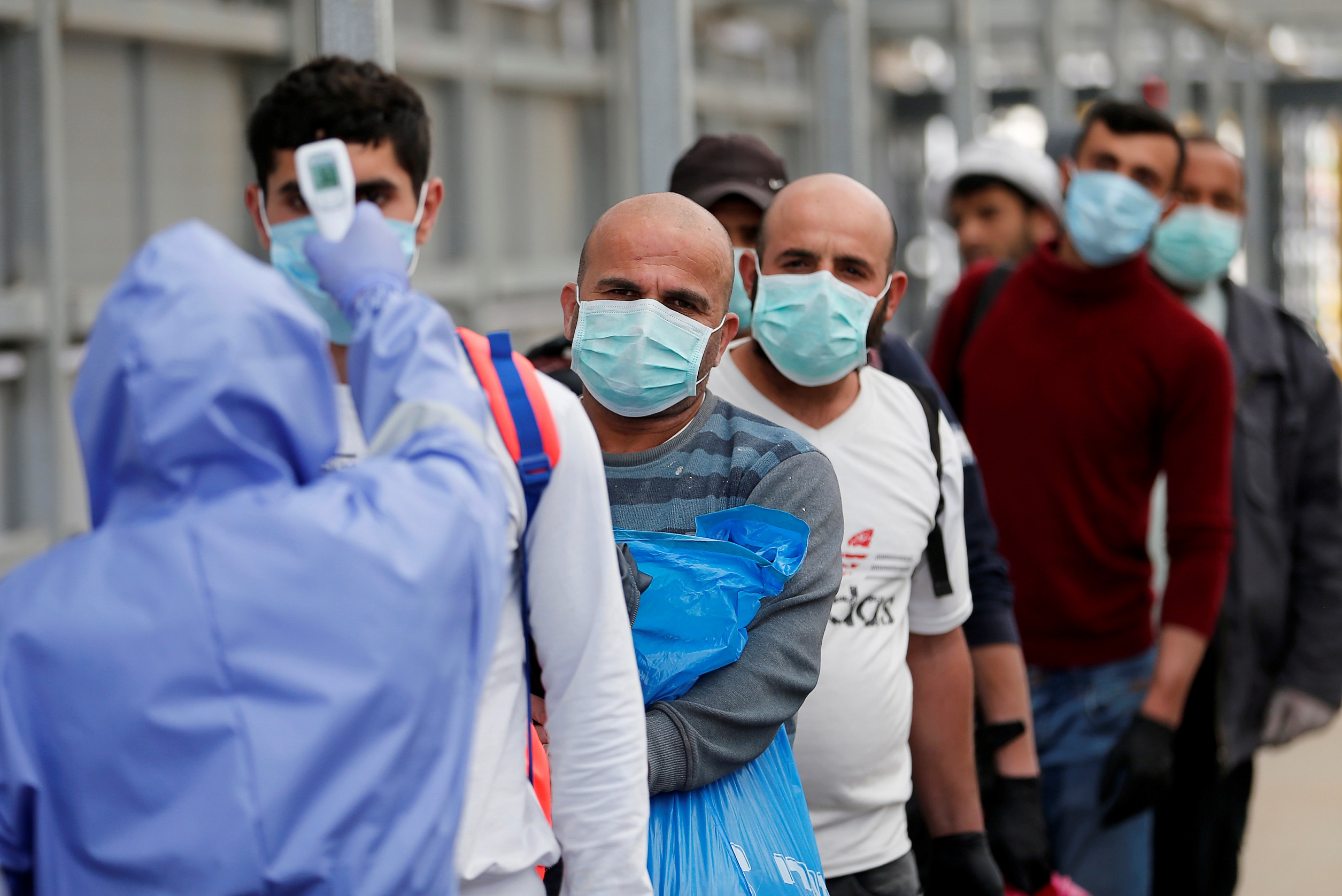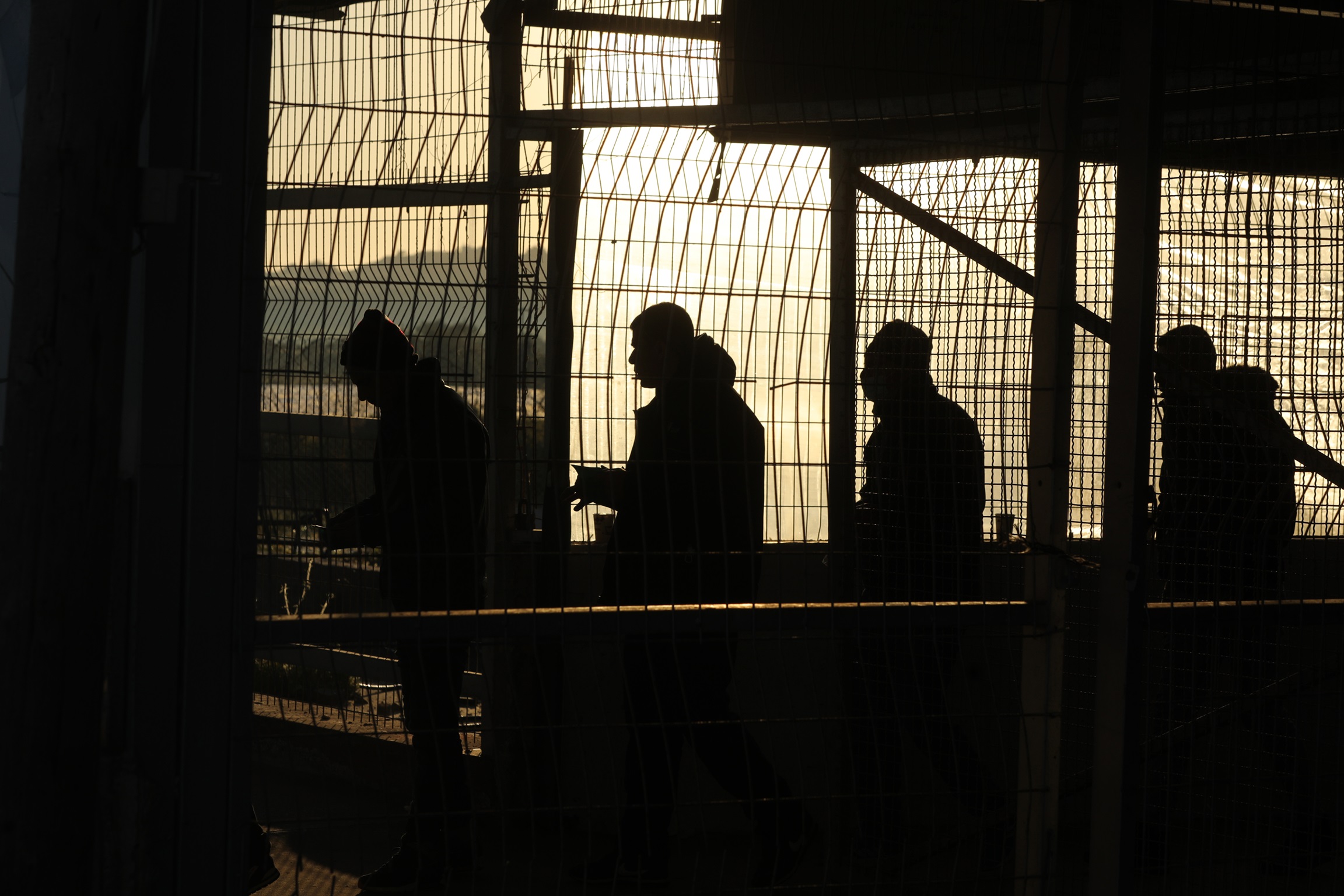Publications
INSS Insight No. 1832, March 4, 2024
Israel’s decision to bar entry to over 140,000 Palestinian workers from the West Bank due to the outbreak of the war with Hamas and concerns over their allegiance with Hamas heavily strains the Palestinian economy and the stability of the Palestinian Authority. Moreover, this move also affects the Israeli economy, which has not yet found replacements for these workers. Particularly the construction and agriculture sectors, heavily dependent on Palestinian labor, are in a state of crisis. The rise in anti-Palestinian sentiment following the October 7 massacre has complicated the Israeli government’s decisions about the future employment of these workers. With almost five months since the outbreak of the war and concerns that tensions will escalate during Ramadan—when Palestinians have many social gatherings marked by increased spending—Israel should implement measures to reduce tensions and prevent further violent incidents in the West Bank. The controlled and gradual return of Palestinian workers, who do not pose a security risk, could help ease tensions.
Almost five months have passed since Hamas’s October 7 massacre, and the ensuing war shows no signs of abating. The IDF is conducting high-intensity operations against Hamas in the Gaza Strip, has successfully thwarted several attempted terror attacks in the West Bank, and is forcefully responding to Hezbollah’s war of solidarity with Hamas. Amid these tensions, life in Israel is gradually returning to routine, except in areas where residents have been evacuated and among many Israelis who are currently serving in the reserves.
At the same time, the Palestinian territories are struggling to recover and are far from regaining a sense of normalcy. The Gaza Strip, at the heart of the conflict, has suffered extensive destruction and devastation due to Israeli military actions, a situation that Hamas instigated. In the West Bank, economic activity has markedly declined, partly as a result of Israeli government decisions at the start of the war that directly has affected daily life in the area. One decision has been the Israeli withholding of tax revenues that it collects on behalf of the Palestinian Authority, including funds designated for the Gaza Strip, in addition to the long-standing policy of withholding the tax revenue allocated to the families of Palestinian prisoners who have committed terror attacks against Israel. Moreover, since the war began in Gaza, Israel has imposed a comprehensive ban on West Bank Palestinian workers entering the country.
The employment of Palestinians in Israel is vital for the Palestinian economy and is firmly established in the various provisions of the Oslo Accords, which stipulate the rules and regulations for the employment of West Bank Palestinians. The Paris Protocol, signed in 1994 between Israel and the Palestinian Liberation Organization (PLO), requires Israel to support the growth of the Palestinian economy; however, over time, the Israeli and Palestinian economies have become mutually dependent and interlinked. This interdependence has fostered the security cooperation between the Israeli and Palestinian security forces. As this cooperation proved its effectiveness and contributed to a sense of stability, Israel became increasingly willing to allow Palestinian workers into its territory.
Before the war broke out, some 165,000 Palestinians worked in Israel and the West Bank settlements. Around 130,000 Palestinians had permits to work in Israel, while an estimated 35,000 worked without permits. Since October 7, approximately 150,000 Palestinians who worked inside the Green Line have lost their main source of income, which depended on the Israeli labor market. The IDF’s Central Command has permitted around 15,000 Palestinians to continue working in the settlements. Despite their hopes for a swift return to normalcy, as occurred after previous rounds of fighting between Israel and Hamas over the last 15 years, this has not yet materialized. The workers understand the significantly stricter policy following Hamas’s attack on October 7, the Palestinians’ denial of these events, their failure to condemn them, and the widespread support for Hamas in the West Bank. Nonetheless, they remain hopeful about returning to their places of employment, partly because Israel has not yet found replacements for them, and their employers appreciated their professionalism over the years. Moreover, working in Israel ensured that many families in the West Bank could maintain a dignified standard of living.

From a macroeconomic perspective, the income generated by Palestinians working in Israel and the settlements constituted around 20 percent of the Palestinian Authority’s GDP, offering a stable economic foundation. In 2022, these workers injected over $4 billion into the Palestinian economy, while the Palestinian Authority’s annual budget was about $6 billion. On the eve of the war, a Palestinian construction worker in Israel could earn about 300 shekels (around $85) daily—more than double the average daily wage in the West Bank of around 115 shekels. This situation, however, is a double-edged sword; although the average household income of Palestinians who work in Israel has increased and the Palestinian economy has benefited from the income earned in Israel, this situation has inadvertently deterred Palestinian men from pursuing higher education. The resultant lack of an educated population hampers the development of the Palestinian economy; as a result, it lags behind, without any engines of growth necessary for the society’s advancement.
Following the Israeli government decisions, the Palestinian economy is now on the brink of collapse. Since the onset of the war, the unemployment rate in the Palestinian territories has risen to 40 percent; those who have found work in the West Bank are paid far less than they would receive if they were working in Israel. The inability to work in Israel for the past five months has fueled anger and frustration among Palestinians, who lack alternative sources of income. The Palestinian Authority has been forced to lay off workers and to reduce salaries for its many employees, including those in the Palestinian security forces. It is actively seeking international support to exert pressure on Israel and has been sounding alarms about its deteriorating economy. Many Palestinians are left wandering the streets without gainful employment and are increasingly prone to the criticism and unrest directed at both Israel and the Palestinian Authority.
At the same time, the ban on Palestinian workers also affects the Israeli economy. The vast majority of Palestinians who worked in Israel before October 7 were employed in the construction, agriculture, or hospitality sectors. The damage to the construction industry has been especially hard since it employed around 100,000 Palestinians—about a third of the workforce in Israel’s construction industry—while 80 percent were employed in “wet work” (plasterers, molders, floorers, and so forth). Having gained expertise and a reputation as professional workers, their absence poses a major problem for the industry. As a result, the construction sector has significantly slowed down since October 7, with almost no building starts and many projects being suspended or progressing slowly. The Israeli contractors’ association has been warning for weeks about the looming threat to the construction industry. Moreover, attempts to find alternative workers from Israel or abroad have largely failed because of the expertise and professionalism required, as well as the need for accommodation in Israel. Israelis are not rushing to work in these industries, and importing workers from countries in East Asia is a process that requires a prolonged period of absorption and training. Since the demand for housing continues to grow, the lack of new construction will likely cause housing prices to spike in the coming years.
Conclusions and Recommendations
At the time of this writing, Hamas’s October 7 massacre continues to influence Israeli decision-making process. The Palestinian Authority, which still has not condemned the atrocities, is facing the repercussions. Palestinian workers from the West Bank who were employed in Israel are also paying the price for their identification with Hamas.
The economic situation in the Palestinian territories is rapidly deteriorating. The Palestinian Authority is unable to find alternative sources of income to replace the tax revenue that Israel is withholding, the loss of income from Israel is damaging economic activity in the Palestinian territories, and the Palestinian Authority is warning of imminent collapse, all of which are of great concern to Israel’s security establishment and some members of the government.
Israel can and should map out a selective and controlled policy for granting work permits, focusing on workers who present a minimal security risk, such as older, married workers with children, and those who are the primary breadwinners for their families. It is worth noting that the industrial zones adjacent to Jewish settlements in the West Bank have continued to employ around 10,000 Palestinian workers during the war. While previous military conflicts with Hamas were seen as enabling the Palestinian economy to reboot itself and to develop its infrastructure and growth engines, the turmoil instigated by Hamas has made rehabilitation and dependence on external support the main characteristics of the Palestinian economy, both now and in the future.
As we approach the holy Muslim month of Ramadan—a time of increased market demand and social gatherings—amid a volatile atmosphere in the West Bank, marked by devastation, loss, and anger, Israel should take measures to reduce tensions and prevent escalating violence in the West Bank. Announcing the gradual return of Palestinian workers to Israel, even if the process is only implemented after Ramadan, will restore some sense of hope for the many Palestinians who rely on employment in Israel for their livelihood.



